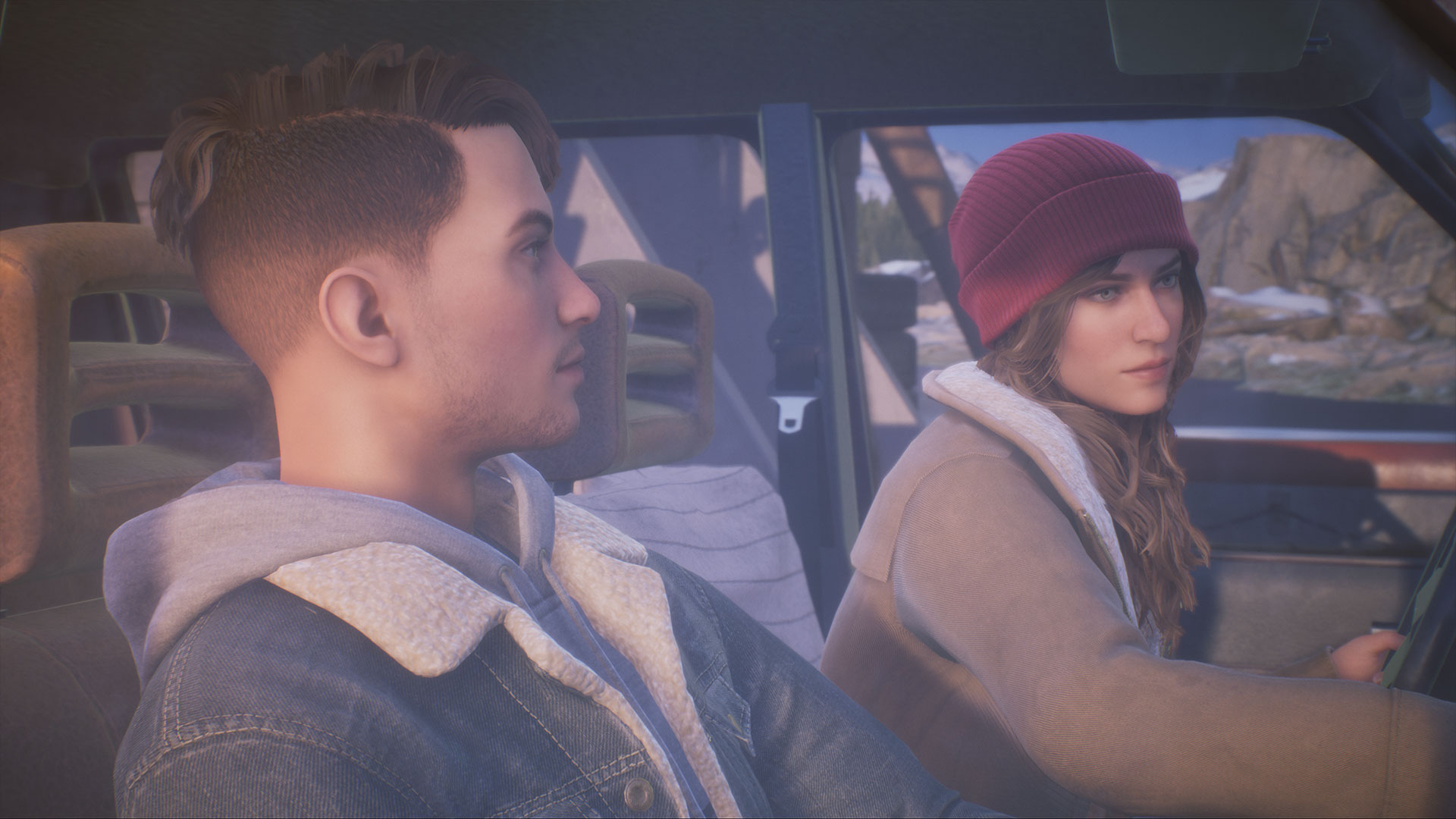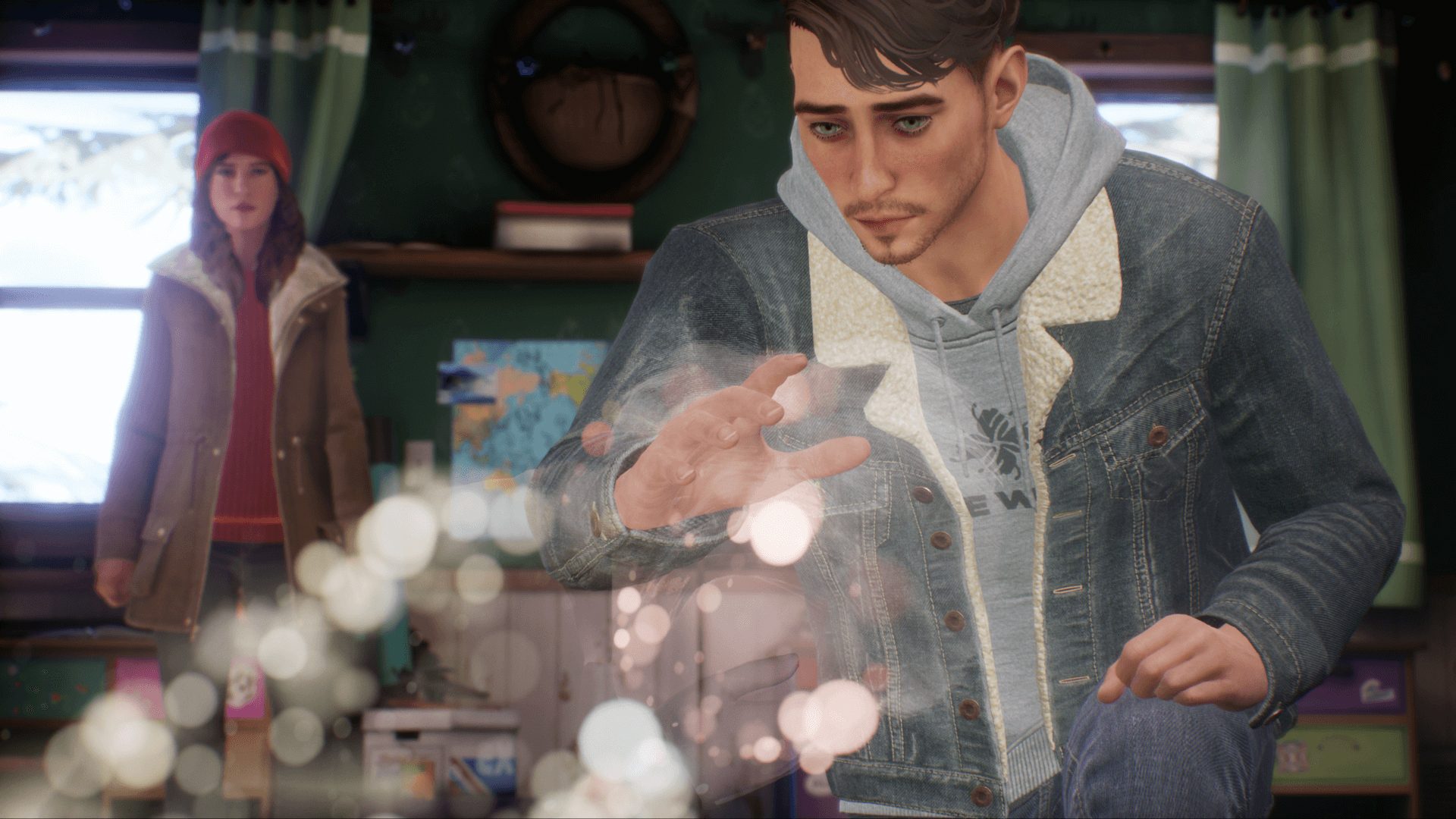Tyler Ronan in Tell Me is the new gold standard for trans characters in video games
Dontnod's latest hero raises the bar for trans game characters

It’s appropriate that Tyler’s last name is Ronan in Tell Me Why, because when you engage with media as a trans person, life is a roller coaster. Your favourite shows from the past become jack in the boxes with boxing gloves, that old transphobic episode hidden away, ready to smash you in the teeth. When you hear of a new film, tv show, or game coming out with a trans character, you’re on the roller coaster going up. Your anticipation is rising, and even though you’re expecting to be let down, you can’t wait for the rush.
Earlier this year, I rode the roller coaster with the Lev from The Last Of Us 2. I praised Lev at the time, viewing him as a vital next step in trans representation in video games. Other trans writers focused less on the positives of Lev, and more on the negatives around the indelible links the game forms between trauma and transness, the use of Lev’s dead name, and the cis-centric presentation of his trans storyline. Both are valid ways to look at Lev; even in my own praise I recognised that he barely scratched the surface.

Switching metaphors, I suppose you could say in terms of video game representation, trans people are dying of thirst in the desert, and while Lev was a warm bottle of week old, flat Coca-Cola. Tyler is a cool glass of water.
It really is as simple as that. Tyler’s not perfect - few characters are - but there are no caveats attached here. He’s not a stepping stone along the journey, he’s the endpoint. Other trans characters in the future may resonate more with me, or you, or anybody, but it doesn’t matter. We’re here now. We’ve made it. Because of Tyler.
I’ve completed all three chapters of Tell Me Why, and while I was impressed with Tyler from the first, I loved him by the end. There are no story spoilers here, but you can rest easy that I’m not writing this prematurely, while the roller coaster is still going up.
I will say that DontNod doesn’t appear to have any trans writers on staff. That’s frequently been called out as a problem when it comes to telling minority-based stories, but there’s clearly been so much depth of research with Tyler it doesn’t bother me here. I never felt like it was a cis person guessing how trans people feel, it was authentic, occasionally raw, and packed with in-jokes; Tyler is also voiced by a trans man, so comes preloaded with an insider’s perspective.

At one point, Tyler makes a joke with conflates drinking tea with taking testosterone shots. It’s exactly as dorky and as gay as it sounds, and is the kind of terrible humour queer communities are filled with.
Weekly digests, tales from the communities you love, and more
This is perhaps Tyler’s greatest strength: confidence. Not just that he’s a confident person, but that the game is extremely confident in how it presents Tyler as a trans man. He calls himself a trans man. Several characters use the word ‘transgender’, and none of them whisper it scandalously or spit it out aggressively. Tyler talks about his testosterone shots, his early days of hormones, and his binder, but only with his twin Alyson, who he deeply trusts. Tell Me Why is never afraid of these moments, but it also understands that Tyler’s life is about more than a transition.
"Other trans characters in the future may resonate more with me, or you, or anybody, but it doesn’t matter. We’re here now. We’ve made it. Because of Tyler."
Lev, Krem in Dragon Age, Leo in Tekken, Janeva in Horizon… these are the headline transgender characters in gaming, once you discount the mean spirited or comedic ones. None of them use the word ‘transgender’. A lot of players might not realise it, but Tell Me Why being this bold is wildly uncharted territory.
DontNod has a full FAQ for any concerns here, but it bears stressing that Tyler’s transition has no roots in any traumatic event, and that his deadname is never used. Interestingly, his previous chosen name before Tyler is used several times, again showing a much deeper understanding of transitioning as a process rather than a single moment.
There’s a scene in Chapter Three specifically that I won’t discuss here, partly because I don’t want to spoil the experience and partly because if I start I won’t stop. It’s unabashedly queer, yet ruggedly masculine, and for a game that surely understands the weight of having the first trans protagonist from a major studio, is a brave and confident risk which works to perfection.
You’ll know it when you play it. I hope it hits you the way it hit me.

It would be remiss not to mention that indie games - far too often left out of these conversations - have been getting representation right for years, albeit on a much smaller scale. If Found…, released earlier this year, is the latest example of such experiences. Indie games and big studio releases often feel like they move in very different circles though, and I think we need to be honest that when a bigger studio does something like this, it echoes louder and reaches more ears.
Things are not all t shots and smiles for Tyler, although I think the game is all the better for this warts and all depiction of life as a trans person in a rural town. Conversion therapy as a concept is mentioned, but is presented as a backwards and dangerous idea with no merit; Tyler was never sent there and we see no scenes of the place. Several characters seem awkward around him at first, or are surprised that Tyler passes, and there’s a couple of microaggressions around this fact. However, they’re true to life and disappear after Chapter One; most of the characters will even apologise for their rudeness.
Transitioning takes a long time, and it certainly feels that representation like this has been a long time coming. There have been a lot of awkward moments on this journey, along with some hopeful and some hateful ones. With Tyler, representation isn’t transitioning anymore, it has transitioned. Legal name change done, new friendships formed, old clothes thrown away, toxic relationships severed. They’ve made it. I’m so proud of them.
Stacey is currently the Editor-in-Chief of TheGamer, but was once a freelance journalist with bylines at Polygon, GamesRadar, The Washington Post, The Huffington Post, TechRadar, SYFY Wire, and IGN, among others.


